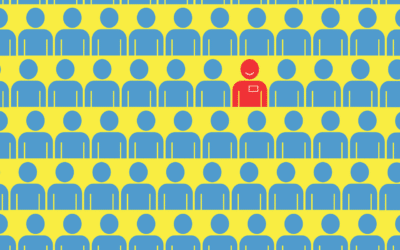The launch of the Do More Ag Foundation is helping shed light on mental health struggles among farmers, and how we can empower ourselves to manage depression and anxiety.
Last summer, Saskatchewan farmer Kim Keller received a message on Twitter from someone she’d never met. He had just lost a farming client to suicide.
Two years earlier, through a company she co-founded, Keller was involved in a t-shirt campaign meant to raise awareness of mental health in farming. She’s subsequently become known in Twitter circles for her knowledge on the topic.
“He was hoping I’d be able to help to direct him to some resources to help the family. It really bothered me that two years after we started the t-shirt campaign, nothing had really changed,” she says. “There was nothing I could give him that I couldn’t have given him two years prior. So I sent out a tweet saying we needed to do more for our farmers in the area of mental health.”
That one tweet created a snowball effect. Keller’s friend Lesley Kelly joined in the conversation and began talking about her family’s own mental health journey. A seed was planted that led to the creation and recent launch of the Do More Agriculture Foundation, a not-for-profit organization focusing on mental health in agriculture across Canada. It had its formal launch at the FarmTech conference in Edmonton, Alta., in February.
Since then, Keller says an important conversation has ramped up in the agriculture community, and it’s a conversation that’s been a long time coming.
“We’ve known for years that depression, anxiety and suicide are huge issues in the agriculture community, but it’s a topic people have been reluctant to talk about. Like in the rest of society, there’s a lack of understanding and knowledge about mental health in agriculture.”
Kim Keller
The statistics paint a disquieting picture of just how serious an issue mental illness is in the ag community. Farmers are among the most vulnerable when it comes to mental health, according to a 2016 study from the University of Guelph. Stress, anxiety, depression, emotional exhaustion and burnout are all higher among farmers than among other groups, the survey shows. As well, Canadian farmers are more stressed than those living and working elsewhere.
The survey found 45 per cent of survey respondents had high stress. Another 58 per cent were classified with varying levels of anxiety, and 35 per cent with depression.
Overall, that’s two-to-four times higher than farmers studied in the United Kingdom and Norway, says study author Andria Jones-Bitton, a professor in the university’s Department of Population Medicine.
“Some of the producer comments leave little doubt about the impact their job and culture is having on them,” she says.
“One said, ‘We are not invincible, but we feel we must be.’ Another said, ‘What makes me the most upset is that I have everything I dreamed of — love, family and a farm — and all I feel is overwhelmed, out-of-control and sad.’”
Tough and Stoic
While there’s a general understanding that farmers and others in the ag community deal with mental health concerns at a high rate, what is often not so obvious is exactly why. According to Janet Smith, program manager for Manitoba Farm, Rural & Northern Support Services, it’s the very thing that helps farmers to be successful that also serves as their Achilles heel when it comes to mental health struggles.
“Farmers are known for their independence, their pride, but also their resilience. Consequently, they’re not great at reaching out for help,” Smith says. Manitoba Farm, Rural & Northern Support Services provides telephone and online counselling to farmers and other rural Manitobans.
“We know agriculture is a very volatile industry, farming especially. You’ll have ups and downs related to weather, government policy, markets, input costs, the list goes on. It impacts people in lots of different ways. The thing is, all those things are out of an individual producer’s control, and when things are beyond your control and aren’t going well, it can create long term levels of stress, which can put a strain on our mental wellbeing.”
Michael Rosmann
Iowa’s Michael Rosmann is a psychologist and farmer whose life’s work involves improving the mental health of the agricultural population. He experienced the 1980s American Farm Crisis firsthand, which was a precursor to his life’s mission of mental health activism among the farming community.
“It was perhaps the roughest time we had in the U.S. since the Great Depression of the 1930s. We lost both farms we bought. We simply couldn’t manage everything,” he says.
“By 1990, things had improved for me farming-wise, but in a moment of haste I stuck my foot in a combine and lost the toes on my right foot. That was a life-changing event, because it taught me that maybe I was trying to do too much — and sometimes maybe for the wrong reasons, as well.”
Rosmann, who received his PhD in clinical psychology from the University of Utah, is the founder of AgriWellness Inc., a nonprofit organization that operates in seven states, and is similar to Manitoba Farm, Rural & Northern Support Services.
Rosmann says it’s not just the fact that agriculture is inherently stressful which makes things difficult for those involved in it. Common behaviours that farmers exhibit often cause or exacerbate depression and anxiety, he adds.
“We know that farmers, especially during harvest, don’t get enough sleep. They work almost around the clock. When we are deprived of sleep, we are more dangerous to ourselves and others. Ten hours of accumulated sleep deficiency makes our reaction time and our judgment similar to what it is when have a blood alcohol level of .08,” he says.
“It’s not just that farming is hard work. It often doesn’t pay enough to cover all the bills, depending on commodity prices, weather and so forth. In the U.S., 80 per cent of farms have an off-farm source of income to supplement what is earned from cropping or livestock production. There aren’t many professions in which that is the case, where people undertake other activities in order to maintain their first choice for a way of life.”
Rosmann has developed a theory to attempt to explain why farmers work themselves to the point where they compromise their mental health.
Humans have a basic drive to acquire sufficient territory to produce the food and shelter required by their families and communities. This genetically programmed instinct impels farmers to hang onto their land at all costs. This “agrarian imperative” drives farmers to work incredibly hard, to endure unusual pain and hardship and to take uncommon risks.
Kim Keller of the Do More Agriculture Foundation says that sort of drive is what defines most people in agriculture, but it can lead to psychological difficulties like depression.
“We view ourselves as tough and stoic. We don’t talk about our feelings and we don’t think we should need help,” Keller says.
Foundation co-founder Lesley Kelly agrees. She and her husband, Matt, have a 6,000-acre family farm in Saskatchewan. Over the years, after struggling with mental health challenges of their own, they’ve come to realize that a successful harvest hinges on the general wellbeing of the farmer.
“Growing up I thought I was very resilient, but as you mature, you realize it’s important to deal with your feelings and be open about them,” Kelly says. “Not only that, but we can’t be afraid to say, ‘OK, I need some help. I can’t do this on my own.’”
Getting Help
Getting professional help for mental health concerns can be challenging for people in rural areas.
“It’s no secret that mental health resources in rural areas aren’t plentiful. They tend to be more urban-based, which for many farmers can be an all-day trip,” Keller notes.
Adding to the challenge is the fact that Canada’s healthcare system doesn’t offer coverage for mental health treatment the same as it does for physical health ailments, notes Michael Landsberg, a well-known sports journalist and one of Canada’s most vocal advocates for mental health awareness. He hosted TSN’s Off The Record for 18 seasons and now operates #SickNotWeak, a mental health charity.
Michael Landsberg
In recent months, the agriculture community has reached out to him to speak at events like the Grain World Conference held in Winnipeg, Man., last November.
“All other areas of medicine have caught up with the times. As times change, so does treatment of physical illness. You can’t say the same for mental illness. When someone says, ‘I’ve ceased to be living; I have lost the ability to experience joy,’ to me that’s a medical emergency. But it’s often not seen as that,” Landsberg says.
“I’m shocked at just how backward we can be as a society when it comes to looking at mental health. The broken system we have is a reflection of the stigma associated with it.”
Battling the stigma surrounding mental illness was the driving force behind the formation of #SickNotWeak. Landsberg is just one of many people standing up to help provide new resources for people who need help — resources that are easy to access, provide effective coping strategies for people who are struggling, and are free.
The hotline operated by Manitoba Farm, Rural & Northern Support Services provides free, confidential counselling services designed to help the affected person deal with what they are feeling at that moment, notes Smith.
“We work from an empowerment model. We know the caller knows their life better than anyone else does. We start with where they are at — not going too far into the future, not delving too far into the past — helping them to create a picture that’s more hopeful and put in place some coping mechanisms that will assist them,” Smith says.
“They may be coached to pay attention to their breathing. Are they sleeping? What are they doing to take care of their basic needs? Eating healthy, exercising, reducing alcohol and caffeine intake, having more contact with people who love and support them and not isolating themselves — all those things are very helpful in helping combat depression and anxiety.”
Rosmann emphasizes that giving people coping strategies they can use at home is key to ensuring long-term success when dealing with mental health concerns. He says the telephone hotline operated by Smith and her team is a perfect example of how farmers and others in agriculture can be empowered to take their mental wellbeing into their own hands.
“The idea is to provide education to farm and ranch people about how we can manage ourselves, because if we are well adjusted and manage our anxiety and depression, we can function optimally as farmers.”
Smith says the hotline’s counsellors, who are farmers as well as professional counsellors, have in-depth knowledge of the unique challenges faced by farmers. They will help the caller determine whether they need to seek additional professional help, be it a visit to their doctor or to a licensed therapist.
“When people do reach out to us for help, they will experience someone who’s there to listen without judgement about whatever the issue is,” Smith says, and adds that picking up the phone can be the first step to recovering from mental health challenges. People can also call the hotline on behalf of a loved one who may not be willing are able to call themselves.
“Stress can change your behaviour. You might be drinking more, behaving recklessly, having anger issues. It can affect your relationships with your family and community. It’s hard, but it’s crucial to break through that stigma and address some of the underlying stress levels before it reaches that point where a person’s sense of hopelessness overtakes them, and they no longer have a desire to live.”
Reducing Stigma
Rosmann is attempting to fight that stigma by eliminating the word “mental” from the discussion. He prefers the word “behavioural” when talking about psychological struggles.
“The word ‘mental’ carries a stigma with it. The word ‘behavioural’ does not. It’s controlling how we behave that puts us in charge of managing our feelings. The term behaviour is not only more understandable, but we generally don’t shy away from it like we do with the word ‘mental’.”
Best of all, talking about “behavioural health” as opposed to “mental health” helps people realize that taking charge of their struggle with depression and anxiety is within their own grasp, and not just the purview of doctors.
“Anyone can help us change our behaviour for the better. It can be an agronomist, our friends, our family, anybody. They may not be a licensed professional, but they can help us change for the better.”
Keller says the recent launch of the Do More Agriculture Foundation is only the beginning of a conversation that will go on for years within the ag community. While she says things are improving with regard to breaking down the stigma associated with mental illness in agriculture, there’s a long way to go to help farmers get the help they need if struggling.
“We’re working to create an environment where we want every producer to feel encouraged to take care of their emotional wellbeing,” Keller adds.








